June 21, 2025 | 02:39 GMT +7
June 21, 2025 | 02:39 GMT +7
Hotline: 0913.378.918
June 21, 2025 | 02:39 GMT +7
Hotline: 0913.378.918
On September 15, in Can Tho City, the State Bank of Vietnam organized a conference to promote credit to support businesses in the rice and fisheries sectors in the Mekong Delta.
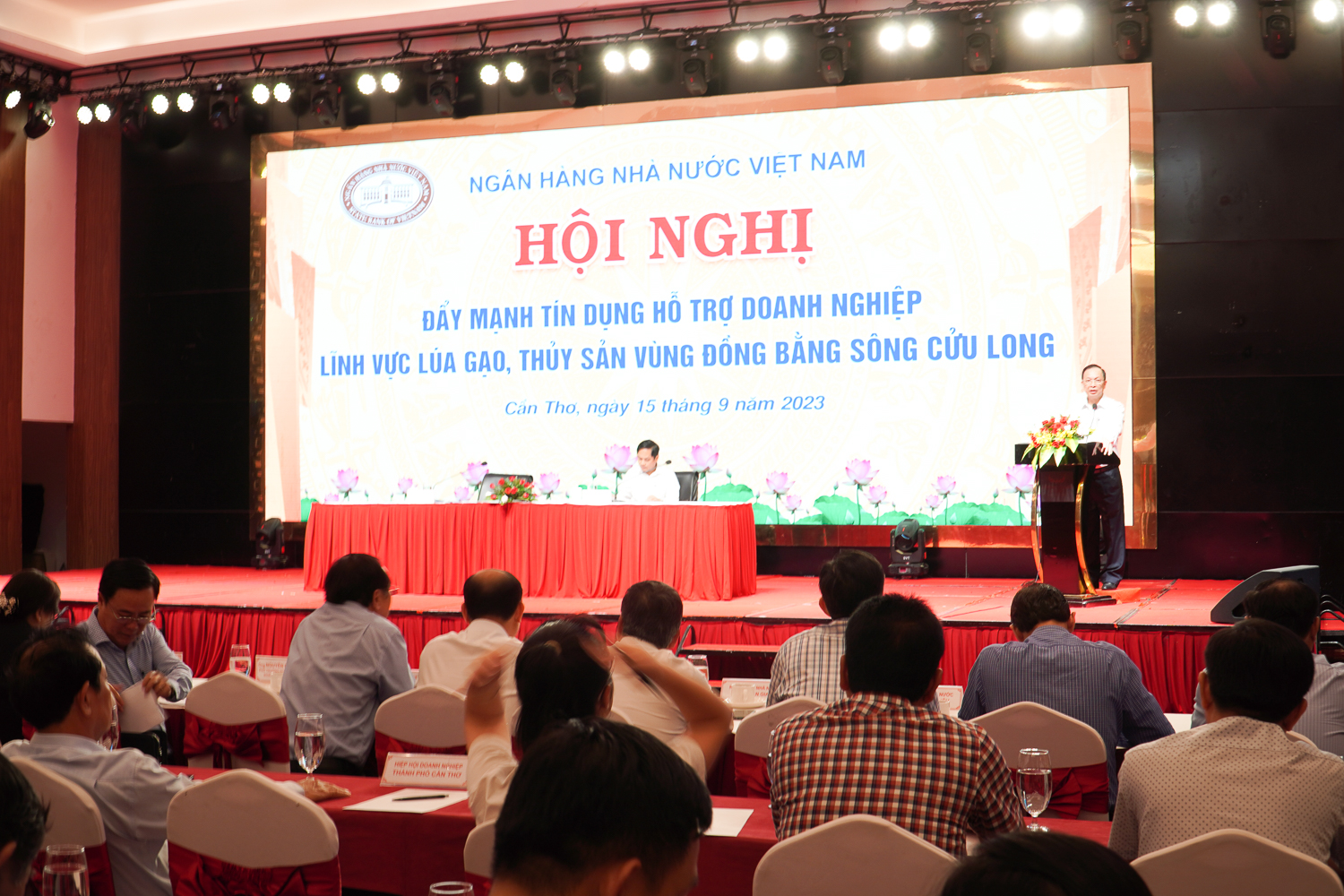
Conference to promote credit to support businesses in the rice and fisheries sectors in the Mekong Delta region organized by the State Bank of Vietnam in coordination with Can Tho City People's Committee. Photo: Kim Anh.
According to Ms. Ha Thu Giang, Director of the Credit Department for Economic Sectors (State Bank of Vietnam), agriculture and rural areas are priority areas in managing credit capital. Based on developments and the actual market situation, right from the beginning of 2023, the State Bank has issued many documents directing credit institutions to concentrate capital sources to meet the production and business needs of businesses, producers, and traders in the rice and fisheries industries. Consequently, it creates favourable conditions for customers in these two fields to access credit capital.
In addition, the State Bank of Vietnam is also constantly improving credit mechanisms and policies. Especially deploying a credit package of about VND 15,000 billion for the forestry and fisheries sector, with a minimum lending interest rate of only 1 - 2%/year - according to the direction of the Prime Minister, implemented until June 30, 2024.
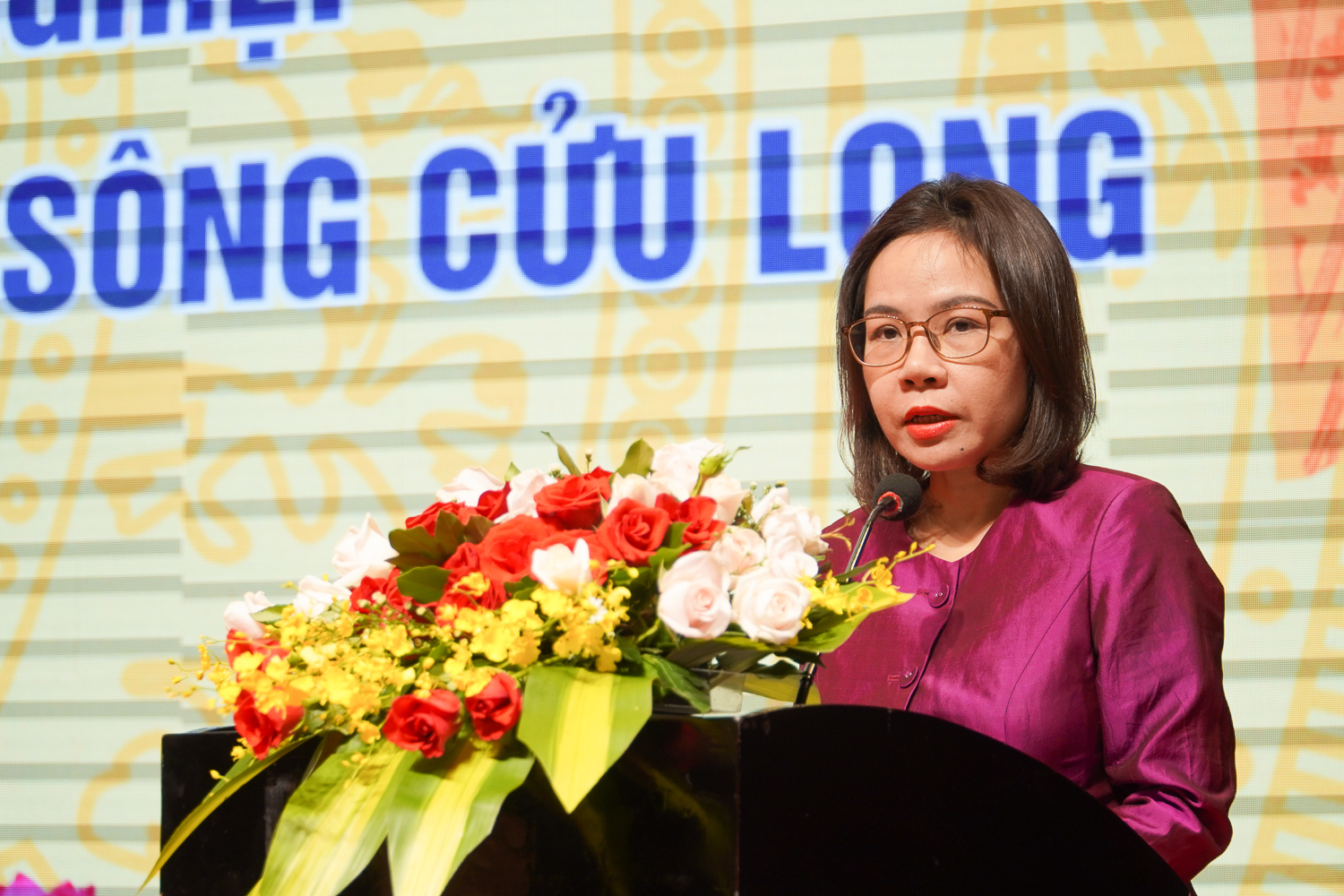
Ms. Ha Thu Giang, Director of the Credit Department for Economic Sectors (State Bank of Vietnam) said that agriculture and rural areas are priority areas in managing credit capital. Photo: Kim Anh.
In addition, to remove difficulties for customers in the fields of rice and fisheries, the State Bank also issued a restructuring policy for the debt repayment period and maintained the same debt group according to Circular 02/2023/TT-NHNN dated April 23, 2023. Customers can extend their debt repayment period without being transferred to bad debt groups and have access to new loans to serve production and business activities.
By the end of August 2023, outstanding debt in the entire Mekong Delta region reached over VND 1 million billion, an increase of 5.35% compared to the end of 2022. In particular, credit for agricultural and rural development is of interest to credit institutions, with outstanding loans reaching nearly VND 535 trillion, an increase of 6.04%, higher than the region's general credit growth rate and the national agricultural and rural credit growth rate.
In particular, credit to the rice and fisheries industries has impressive growth. Specifically, outstanding debt in the fisheries sector reached nearly VND 129 trillion, an increase of 8.5% compared to 2022 and accounting for nearly 59% of the country's outstanding fisheries debt (mainly for pangasius and shrimp products). Outstanding debt in the rice sector also reached nearly 103 trillion VND, an increase of 9%, accounting for about 53% of the country's outstanding rice debt. It is expected that from now until the end of 2023, credit growth for the above two areas will continue to increase rapidly due to seasonal factors and improved export demand.
At the Vietnam Bank for Agriculture and Rural Development (Agribank), the unit plays a key role in investing in the development of "three agriculture pillars". Outstanding loans to the rice and fisheries sectors in the Mekong Delta account for a high proportion. Ms. Phung Thi Binh, Deputy General Director of Agribank said, by the end of August 2023, Agribank's outstanding rice sector debt reached VND 58 trillion, an increase of VND 2 trillion compared to 2022. Outstanding debt in the fisheries sector is VND 67 trillion, also an increase of VND 3 trillion compared to the beginning of 2023.
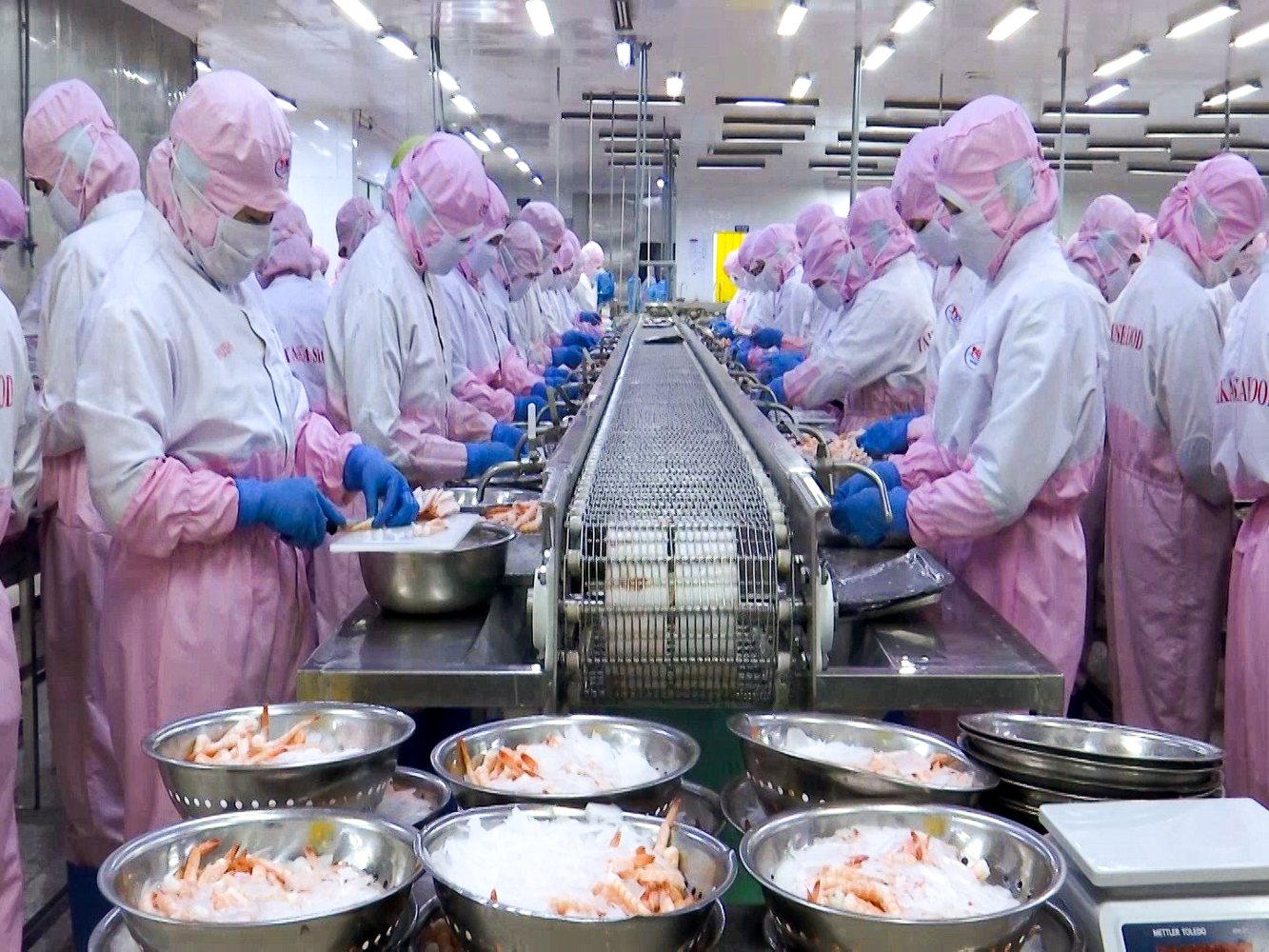
Credit to the rice and fisheries sectors has seen impressive growth, outstanding loans to the fisheries sector reached nearly VND 129 trillion, an increase of 8.5%, and the rice sector reached nearly VND 103 trillion, an increase of 9% compared to 2022. Photo: Kim Anh.
In particular, in May 2023, Agribank signed a cooperation agreement with the Ministry of Agriculture and Rural Development to promote banking services serving agriculture and rural areas through programs, schemes and projects chaired by the Ministry. Especially the Sustainable Development Program of 1 million ha of high-quality rice associated with green growth in the Mekong Delta.
Credit solutions for the rice and fisheries sectors at the Joint Stock Commercial Bank for Investment and Development of Vietnam (BIDV) are also very diverse. Mr. Le Ngoc Lam, General Director of BIDV said, that over the past 15 years, outstanding debt in the rice and fisheries sectors in the Mekong Delta has increased by an average of 22%/year and reached over 56.6 trillion VND by the end of August 2023.
From the beginning of 2023 until now, this bank has also directed units to promote lending for purchasing and trading rice. At the same time, actively deploying a credit package of VND 15,000 billion, outstanding fisheries loans at BIDV bank by the end of August 2023 will reach VND 960 billion, of which outstanding fisheries loans in the Mekong Delta reached over VND 34.6 trillion.
Translated by Hoang Duy
![Turning wind and rain into action: [10] Advancing accessible climate services for farmers](https://t.ex-cdn.com/nongnghiepmoitruong.vn/608w/files/linhnhp/2025/06/20/1911-z6704423696987_15fd32ffc26d590d204d520c9dac6786-nongnghiep-161854.jpg)
(VAN) Not only does it help farmers 'avoid droughts and rains,' the development of agricultural climate services also enhances their ability to proactively adapt to a rapidly changing climate.
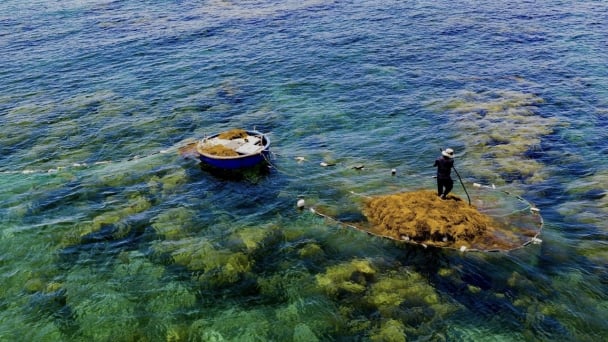
(VAN) With international assistance, the harvesting of sargassum seaweed in Quang Ngai has become increasingly regulated, thereby safeguarding marine life and ensuring the stability of coastal communities' livelihoods.
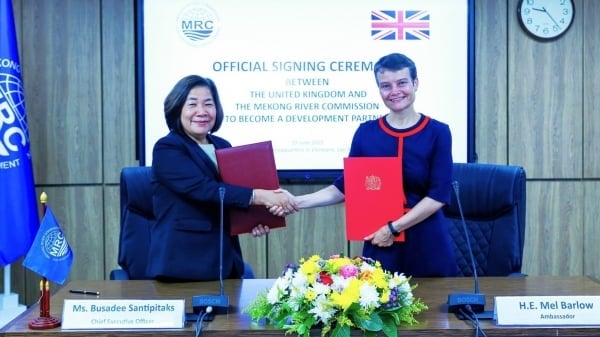
(VAN) On June 19, the United Kingdom officially became a Development Partner of the Mekong River Commission.

(VAN) Biodiversity is being threatened by traditional remedies made from wildlife. Traditional medicine and humans must change to live in harmony with nature.

(VAN) Agrifood investment and finance solutions for people and the planet.

(VAN) Microplastic contamination has become pervasive in seafood, posing unprecedented challenges for food safety and marine ecosystems.
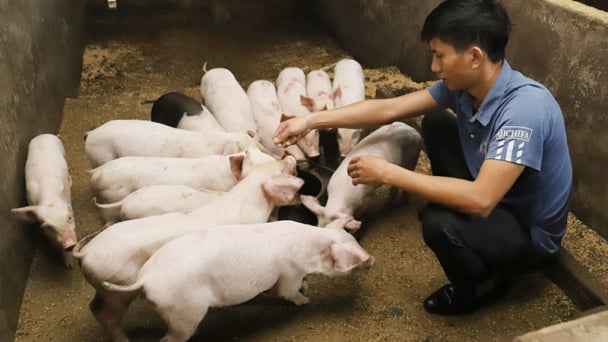
(VAN) Proactively using vaccines, combined with transport control and enhanced surveillance, is the only viable path toward biosecure and sustainable livestock production in Vietnam.